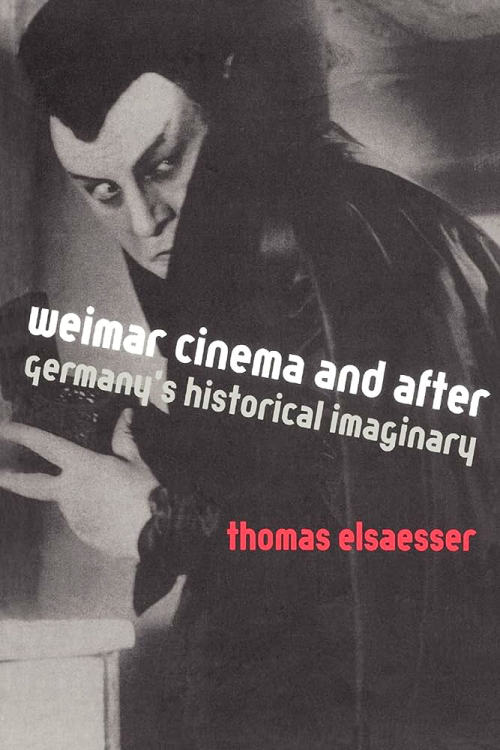German cinema of the 1920s is still regarded as one of the "golden ages" of world cinema. Films such as The Cabinet of Dr. Caligari, Nosferatu and The Blue Angel are among the key films defining an age of Germany as a nation uneasy with itself. Directors such as Fritz Lang, F.W. Murnau and G.W. Pabst, having apparently announced the horrors of fascism while testifying to the traumas of a defeated nation, cast long shadows over German cinema to this day.
Contents
Part I – Haunted Screens: Caligari’s Cabinets and a German Studio System
1. Introduction: Weimar Cinema’s Impersonations
Thomas Elsaesser
2. Expressionist Film or Weimar Cinema? With Siegfried Kracauer and Lotte Eisner (Once More) To the Movies
Thomas Elsaesser
3. Caligari’s Family: Expressionism, Frame Tales and Master-Narratives
Thomas Elsaesser
4. Erich Pommer, ‘Die Ufa’, and Germany’s Bid for a Studio System
Thomas Elsaesser
Part II – In the Realm of the Look: Lang, Lubitsch, Murnau And Pabst
1. Fritz Lang’s Traps for the Mind and Eye: Dr Mabuse the Gambler and Other Disguise Artists
Thomas Elsaesser
2. The Old and the New Regime of the Gaze: Ernst Lubitsch and Madame Dubarry
Thomas Elsaesser
3. Nosferatu, Tartuffe and Faust: Secret Affinities in Friedrich Wilhelm Murnau
Thomas Elsaesser
4. Lulu and the Meter Man: Louise Brooks, G.W. Pabst and Pandora’s Box
Thomas Elsaesser
Part III – Transparent Duplicities: Comedy, Opera, Operetta
1. Hallo Caesar!: Reinhold Schünzel, a German Chaplin?
Thomas Elsaesser
2. Transparent Duplicities: Pabst’s the Threepenny Opera
Thomas Elsaesser
3. It’s the End of the Song: Walter Reisch, Operetta and the Double Negative
Thomas Elsaesser
Part IV – After Weimar: Avant-Garde and Modernisation, Emigration and Film Noir
